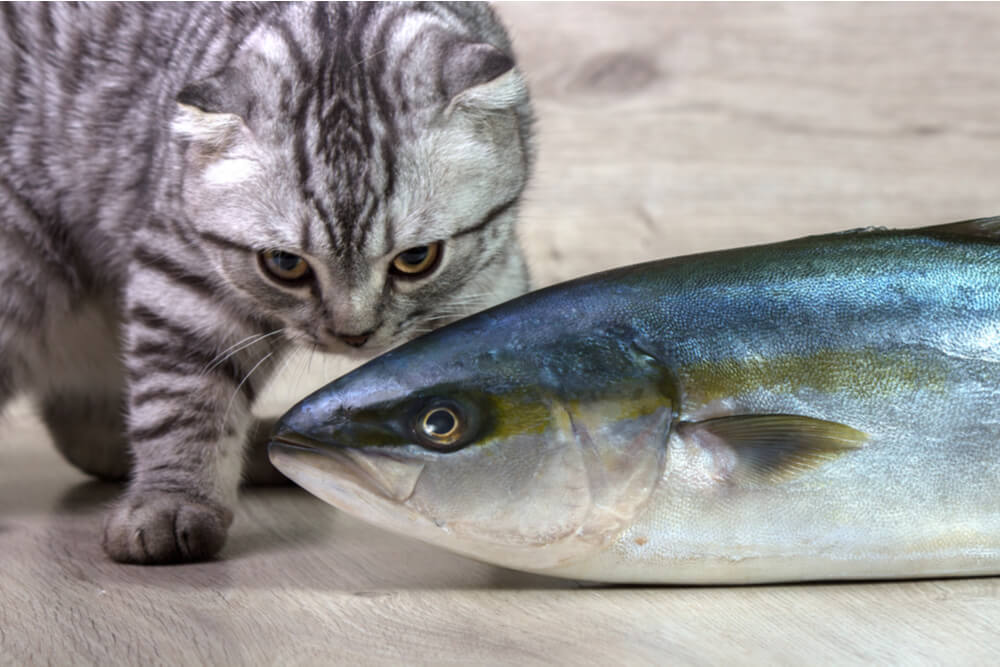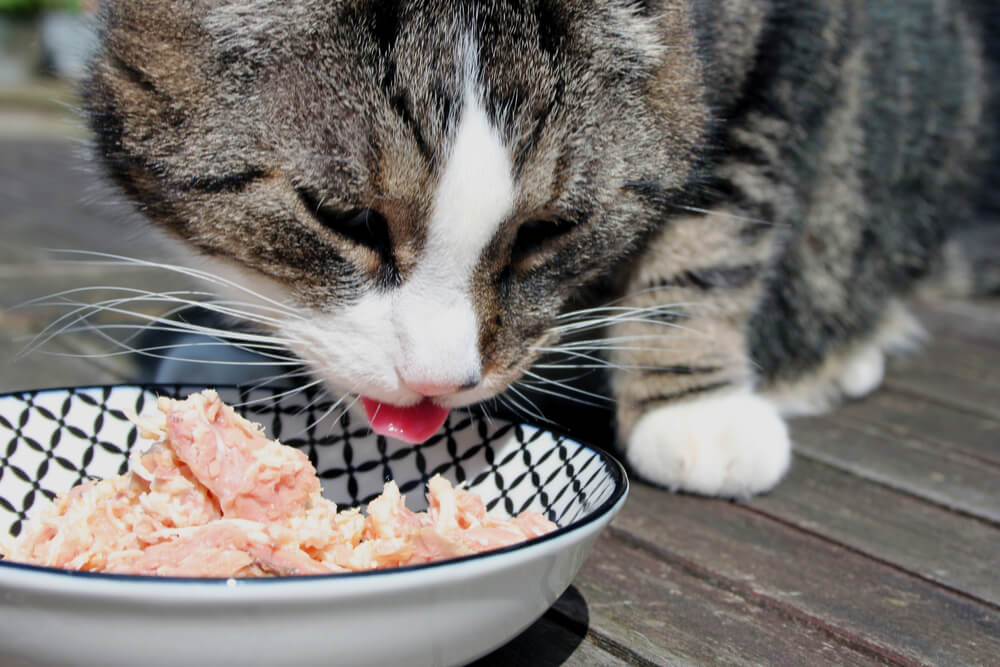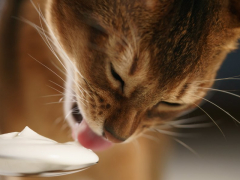
As owners, we all know that cats love fish! But can cats eat tuna?
Tuna is a well-known cat treat. Not so long ago, we had a wide variety of cat food at our disposal, and owners would feed their cats canned tuna. However, there have been advanced investigations, and we now know that our cats have far more nutritional needs than we ever thought to cater for.
So, is it safe to feed our cats tuna? That’s what we’re about to find out.
Is Tuna Good for Cats?

When eaten in moderation, tuna has several health benefits for cats, including healthier skin and coat, elimination of free radicals, and more.
If you are giving tuna in moderation, then it can be a healthy treat for most cats.
Tuna is high in protein and low in carbohydrates and as tuna is a fish, it provides our cats with omega-3 Essential Fatty Acids (EFA’s) which are good for skin and coat health.
Tuna has many other health benefits, should it be part of a balanced diet and given in portions which work alongside their other cat feed. These benefits include:
- Growth – Tuna is high in protein and amino acids which can help cats grow. The nutrients found in tuna can help boost muscle growth.
- Improve immune system – Tuna contains essential vitamins that can improve a cat’s immunity.
- Increased energy levels – Omega 3 fatty acids can help increase energy levels in your cat.
- Eliminates free radicals – Tuna also contains lots of antioxidants, which can help remove free radicals. These compounds can aid in reducing blood pressure too.
Is Tuna Bad for Cats?

What Are The Disadvantages Of Tuna? Below listed are some of the potential risks of feeding your cat tuna.
Obesity
Obesity is when our cats have an excessive increase of fat in the adipose storage areas of the body. It involves an increased mass of body fat produced either by an enlargement of fat cell size alone (hypertrophic obesity) or by an increase in both fat cell size and fat cell number (hyperplastic obesity). Obesity in cats contributes to health concerns such as diabetes, urinary disease, arthritis.
Read More: Obesity in Cats: Causes, Symptoms, and Treatment
To prevent obesity, giving fewer treats and human food is a good starting point. As cat owners, it is nice to treat your cat. But if you are going to share treats, ensure they remain a treat, not a regular source of additional calories.
Allergies
Believe it or not, some cats can be allergic to fish. If you notice that your cat has signs of skin disease or has digestive upsets, then your cat may have a food allergy. If you notice any symptoms or if your cat is unwell, contact a veterinary surgeon straight away.
Also Read: Allergies In Cats: Causes, Symptoms & Treatments
Tuna Is High in Mercury
Tuna is high in mercury, a toxic metal. Too much tuna could potentially lead to a buildup of mercury in the body. This is rare, but signs you could see are incoordination, loss of balance and problems walking. If you notice these signs, seek veterinary advice immediately, as other health problems may be apparent.
Thiaminase
If your cat is being fed too much tuna, then it can increase the production of Thiaminase. In cats, this enzyme can break down an essential B vitamin called thiamine, potentially leading a dangerous condition called thiamine deficiency.
Fussy Eaters
Some cats, when given tuna regularly, could start refusing well-balanced cat food and hoping they will get something tastier instead (like tuna!) This can turn into feeding trouble.
On the flipside, tuna can be used to encourage unwell cats to eat, given in small amounts.
So, Is It Safe for Cats To Eat Tuna?
If you are going to give tuna as a treat alongside a complete and well-balanced diet, then this is fine but too much can be harmful.
Giving your cat solely tuna will not give them the right balance of nutrients they need to remain healthy. It is always a good idea to talk to your veterinary surgeon before adding any new foods to your cat’s diet.
What Kind of Tuna Should I Feed My Cat?
It is best to give your cat canned tuna which is packed with water, ideally not in oil or tuna with added salt or other flavorings, which could cause health problems.
How Much Tuna Can I Give My Cat?
Tuna is not a complete diet on its own. occasional treat in small amounts, with a recommended maximum of once a week and no more than one teaspoon per 10 pounds of body weight, as excessive consumption of tuna can lead to mercury poisoning and other health issues. It is always a good idea to talk to your veterinary surgeon before adding any new foods to your cat’s diet.
Also Read: How Much To Feed A Cat?







